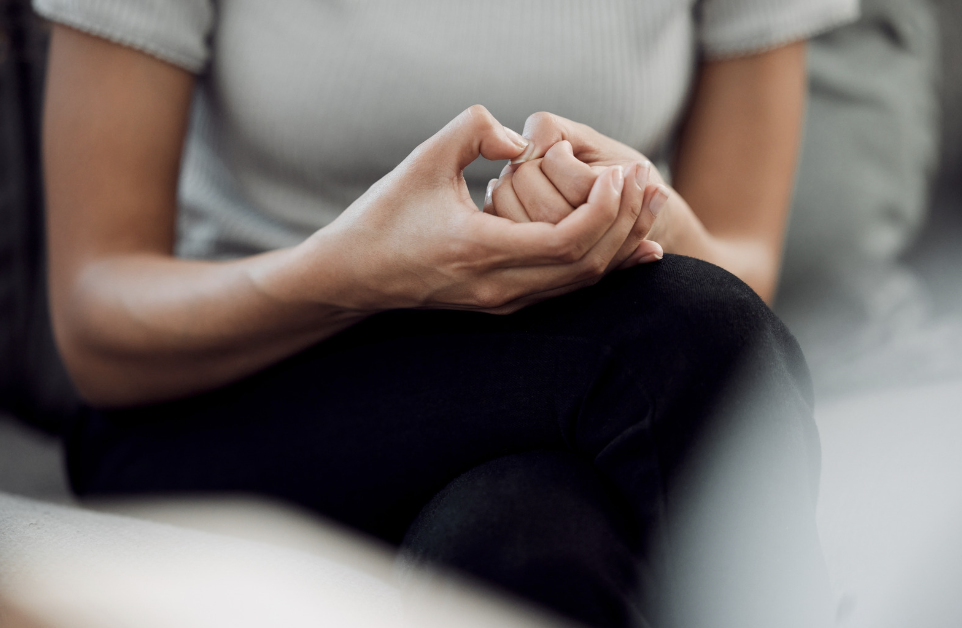This Mental Health Awareness Week the theme is surrounding anxiety. Anxiety is something we all experience, and is a normal emotion — however when it gets out of control then it can have a detrimental impact on your mental health.
There are many ways both in which anxiety can be felt, but also how it can be expressed — so it is important to remember that different people will experience and show anxiety in different ways. It is important to better understand anxiety, so that we can provide more caring support for those dealing with such, be more accepting, and put in place strategies to protect ourselves.
The Mental Health Foundation has outlined 9 different ways in which you can try to manage your feelings of anxiety. Of course, what works for someone else may not work for you — however, these are a few different things you can employ to help you to control your anxious feelings. Read their article here for more details.
One of the 9 points highlighted by the Mental Health Foundation, is eating a healthy diet. This is some which we at ScreenMe know is super important for you mental health, general health, and wellbeing. Therefore, we have pulled together a list of do’s and don’ts which can help you fell your best.
Foods to help with anxiety:
- Omega-3 Fatty acids
- These have a range of great benefits including — reduced inflammation, regulation of serotonin.
- Great foods include: salmon, chia seeds
- If you are struggling to get enough Omerga-3 fatty acids, then we suggest taking a supplement — which you can view in our Health Shop (where we have a vegan and non-vegan version available).
2. Vitamin-D
- Particularly for those living in the UK (even with the sun coming out), many of us are deficient in Vitamin D, so making sure we get enough of this is really important.
- Great foods include: egg yolks, oily fish, mushrooms
- If you are struggling to get enough Vitamin D, then we suggest taking a supplement — which you can view on our Health Shop.
- Worried about your Vitamin D levels, then take our Vitamin D test here.
3. Herbal teas
- Herbal teas have brilliant anti-oxidant properties, as well as being great to combat inflammation and regulate the HPA axis, which is a key part of how the body responds to stress.
- Also, taking the time to have a cup of tea and really allow yourself to relax and de-stress from the day, can help to improve your sleep quality and reduce anxiety.
- Some of our favourites include: chamomile tea, and peppermint tea.
4. Probiotic-rich foods
- There’s increasing evidence that a healthy gut supports healthy brain function — with this being where the majority of serotonin is made in the body. Therefore having a healthy gut is really important for good mental health.
- Great foods include: live yogurt (try to avoid those with lots of extra sugars/sweeteners in), sauerkraut, kimchi, miso.
- If you are worried about your gut health — then check out our Gut Microbiome Package — where you can screen all bacteria in your microbiome.
Foods to avoid (with good substitutes!)
- Really sugary foods
- Foods high in refined sugar cause sudden increases in your blood sugar levels. The following blood sugar crashes therefore leave you feeling tired, demotivated and more susceptible to anxious thoughts.
- Good substitutes — dark chocolate is a great substitute as it contains flavonols, which are anti-oxidants. Further, dark chocolate often curbs sugar cravings, leaving you feeling satisfied, rather than going for more and more sweet treats.
2. Alcohol
- Alcohol is a depressant, so if you have been feeling anxious lately, it may be time to consider reducing or cutting out alcohol completely.
- There are many low or no-alcohol alternatives, which you can substitute instead of alcoholic drinks at least once or twice a week.
3. Caffeine
- There are mixed reports on how good or bad caffeine is for you. However, if you are drinking lots of caffeinated drinks then it can definitely contribute to anxious feelings. If you have lots of coffee regularly, then you can face caffeine withdrawal, so it is better to phase it out slowly.
- If you enjoy the taste of coffee, then try substituting it out for decaffeinated coffee. If you are using coffee for much needed energy spikes, then it may be time to evaluate how much time you are dedicating to sleep, and eating a balanced diet.
4. High salt & processed foods
- Foods that are highly processed often contain a lot of salt in them. This increases your blood pressure and heart rate, therefore resulting in higher adrenaline and work done by the body, which can heighten feelings of anxiety.
- Try to choose fresh, home-made foods instead of packaged foods that seem ‘easy’. If you want more help on easy, healthy recipes — then download our free 7-day breakfast plan!
It is really important to take care of your mental health, and diet is just one of the ways in which you can look after yourself and feel better from the inside out. If you are struggling and seek further support, we highly suggest speaking to someone such as:
Samaritan’s helpline — 116123
Fariba Khonsari







